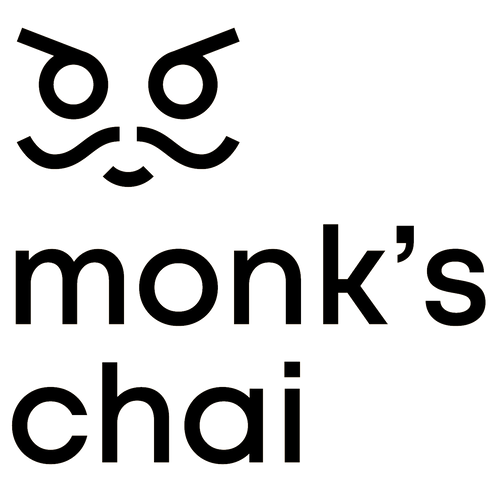Yes - chai latte can cause acid reflux, especially in people who are sensitive to caffeine, dairy, or certain spices. While it’s a cosy, spiced comfort drink for many, its ingredients include several known reflux triggers that may cause discomfort if you're prone to heartburn or GERD.
This guide breaks down what’s in a chai latte that might be causing the burn, who’s most at risk, and what you can drink instead — without giving up that warm chai flavour entirely.
What’s in a Chai Latte That Might Trigger Reflux?
Let’s get into the ingredients. A standard chai latte is made with black tea, a mix of warming spices, milk, and usually a sweetener like syrup or sugar. Each of these can be harmless alone - but together, they can pack a punch for sensitive stomachs.
Here’s what to watch out for:
-
Caffeine (from black tea): Like coffee, black tea contains caffeine, which can relax the lower esophageal sphincter (LES) — the muscle that keeps stomach acid where it belongs. Medical studies have confirmed caffeine is a known reflux trigger for many (1), (2)
More health information: Exploring Caffeine Sensitivity for Tea Lovers
-
Spices (cinnamon, clove, black pepper, ginger): Spices can be a double-edged sword. Ginger may help settle the stomach in small amounts, but clove and pepper can irritate it. When mixed into a concentrated blend like chai, they can trigger heartburn in some people (3).
-
Dairy Milk: For those who are lactose-intolerant or sensitive to saturated fat, dairy can worsen symptoms — especially when steamed, sweetened, and paired with caffeine (4).
-
Sugar or Syrup: High sugar intake can delay gastric emptying and may worsen reflux. Syrups used in café-style lattes often include processed additives that your gut may not love (5).
Who’s Most Likely to React to Chai Latte?

Not everyone will feel discomfort after drinking chai, but these groups are more likely to (6), (7):
-
People with GERD (gastroesophageal reflux disease) or frequent heartburn
-
Those who are sensitive to spicy food or caffeine
-
Individuals with lactose intolerance or dairy sensitivities
-
People who notice bloating, burping, or burning after milky, spiced drinks
If this sounds like you — it doesn’t mean you have to give up chai forever. But it might be time to rethink what’s in your cup.
Chai Latte vs. Coffee for Acid Reflux
So is chai any better than coffee when it comes to reflux?

Here's the breakdown of each essential element that affect to one's possibility to catch acid reflux:
-
Caffeine content: A standard 8oz chai latte has around 40–50mg of caffeine, while coffee can have 95–200mg. If caffeine is your trigger, chai is the lighter option.
-
Acidity: Coffee is more acidic than black tea, which may cause more issues for some.
-
Milk and sugar: Both drinks often include dairy and sweeteners — and both can cause problems, depending on how your body responds.
Verdict: Chai is often a gentler choice than coffee for people with reflux — but not always. The spices in chai, especially in concentrated café versions, can still be a problem.
Reflux-friendly Alternatives to Chai
If you love chai but hate the burn, don’t worry — there are better options. Here’s how to enjoy the flavour without the discomfort:
-
Go Decaf: Look for decaffeinated chai blends or make your own using rooibos, which is naturally caffeine-free and stomach-friendly.
-
Try Herbal Chai (e.g. Rooibos Chai): Rooibos-based chai blends skip the caffeine but still deliver warm, spiced flavour. They’re naturally low in acid and gentle on digestion.
Swap the Milk: Replace dairy with low-fat, plant-based milk like oat, almond, or coconut. These are lighter on the gut and less likely to trigger reflux. -
Reduce the Spices or DIY: Make your own chai concentrate and scale back on harsh spices like clove or pepper. Stick to soothing ones like cinnamon, fennel, cardamom, and ginger (in small amounts).
👉 Try Monk’s Chai — a plant-based, hand-blended, organic chai tea made without preservatives or harsh additives. It’s crafted with balance in mind, so you get bold flavour without the side effects.

Bottom Line: Should You Skip Chai Latte?
If chai latte always leads to acid reflux, it’s probably not working for your system — and yes, you should cut it or modify it. But for many, the issue is how it’s made, not the idea of chai itself.
Test alternatives:
-
Go caffeine-free
-
Use dairy-free milk
-
Cut down on spices
-
Keep sugar low
Everyone’s gut is different, and triggers vary from person to person. Keep a food journal if you’re unsure — or simply switch to a reflux-friendly chai blend that’s made to be gentler on the stomach.
References:
(1) Surdea-Blaga T, Negrutiu DE, Palage M and Dumitrascu DL (2019) ‘Food and Gastroesophageal Reflux Disease’, Current Medicinal Chemistry, 26(19), doi:10.2174/0929867324666170515123807.
(2) Alhuzaim W, Muqrin R, Albalăi L, Alazani S and Hadal S (2022) ‘Effects of caffeine and
peppermint consumption on GERD patients in Saudi Arabia’, Medical Science, 26. https://discoveryjournals.org/medicalscience/current_issue/v26/n130/ms550e2613.pdf
(3) Bolin TD, Korman MG, Hansky J and Stanton R (2000) ‘Heartburn: Community perceptions’, Journal of Gastroenterology and Hepatology, 35-39, doi:10.1046/j.1440-1746.2000.02051.x.
(4) Swaminathan K (2011) ‘A hidden history of heartburn’, Indian Journal of Pharmacology 43(1):78-79, doi:10.4103/0253-7613.75677.
(5) Feldman M and Barnett C (1995) ‘Relationships between the acidity and osmolality of popular beverages and reported postprandial heartburn’, Gastroenterology, 108(1):125-131, doi:10.1016/0016-5085(95)90016-0
(6) Pope CE (1994) ‘Acid-Reflux Disorders’, The New England Journal of Medicine, 331:656-660, doi:10.1056/NEJM199409083311007.
(7) Boulton KHS and Dettmar PW (2022) ‘A narrative review of the prevalence of gastroesophageal reflux disease (GERD)’, Annals of Esophagus 5 (2022). https://aoe.amegroups.org/article/view/6041/html

